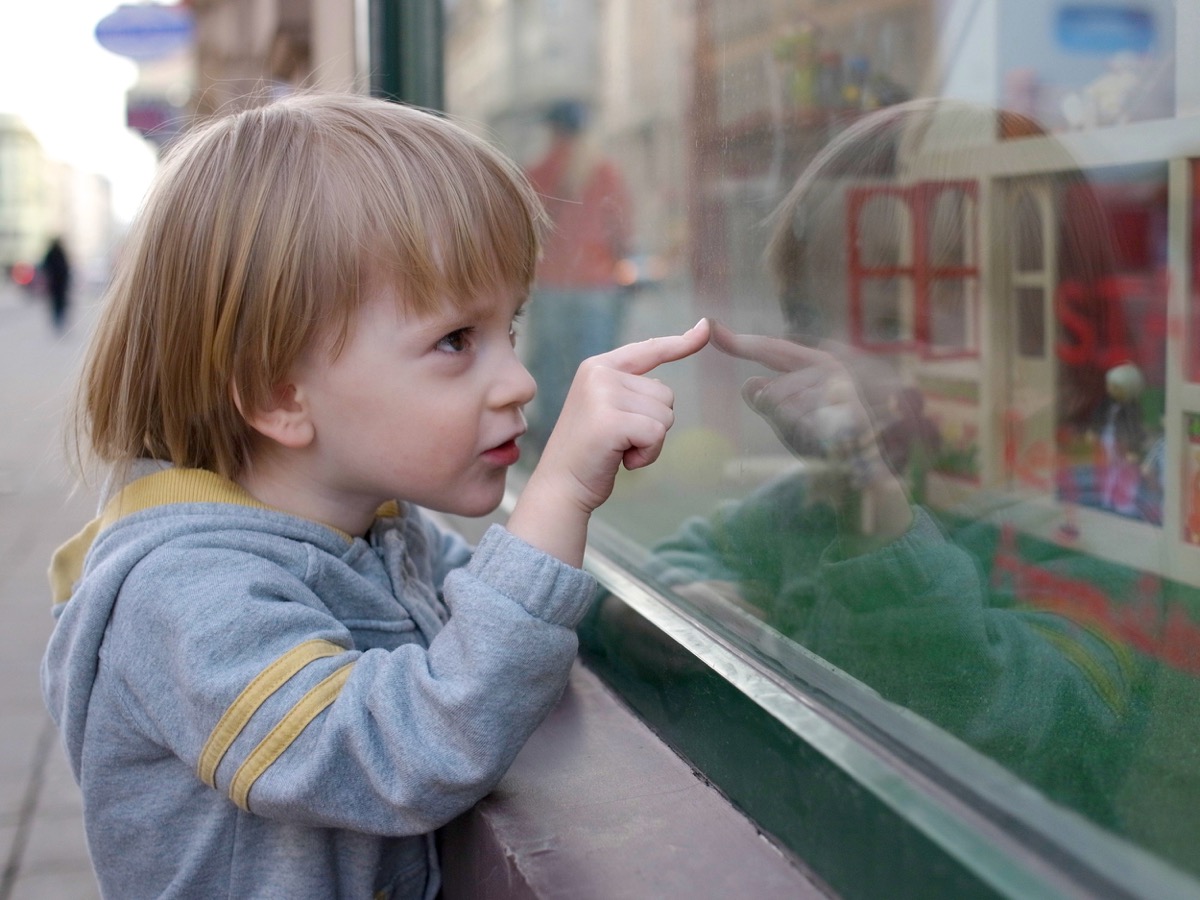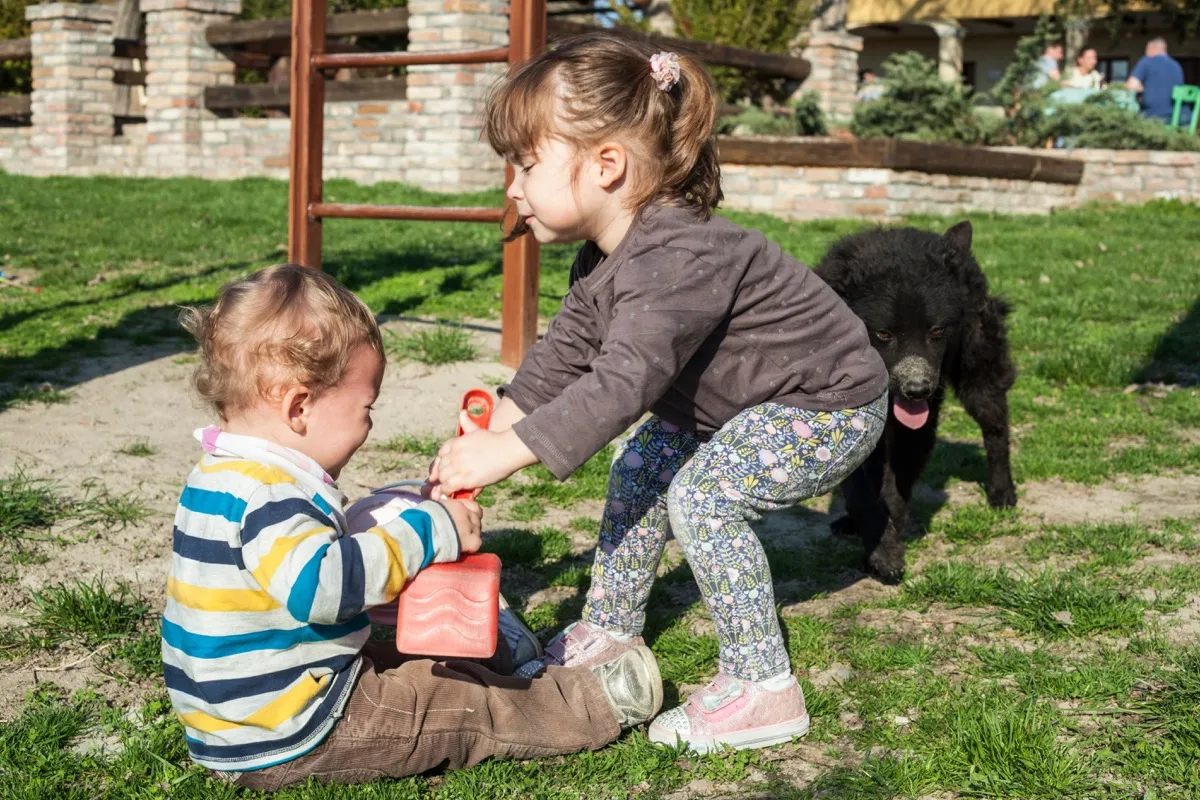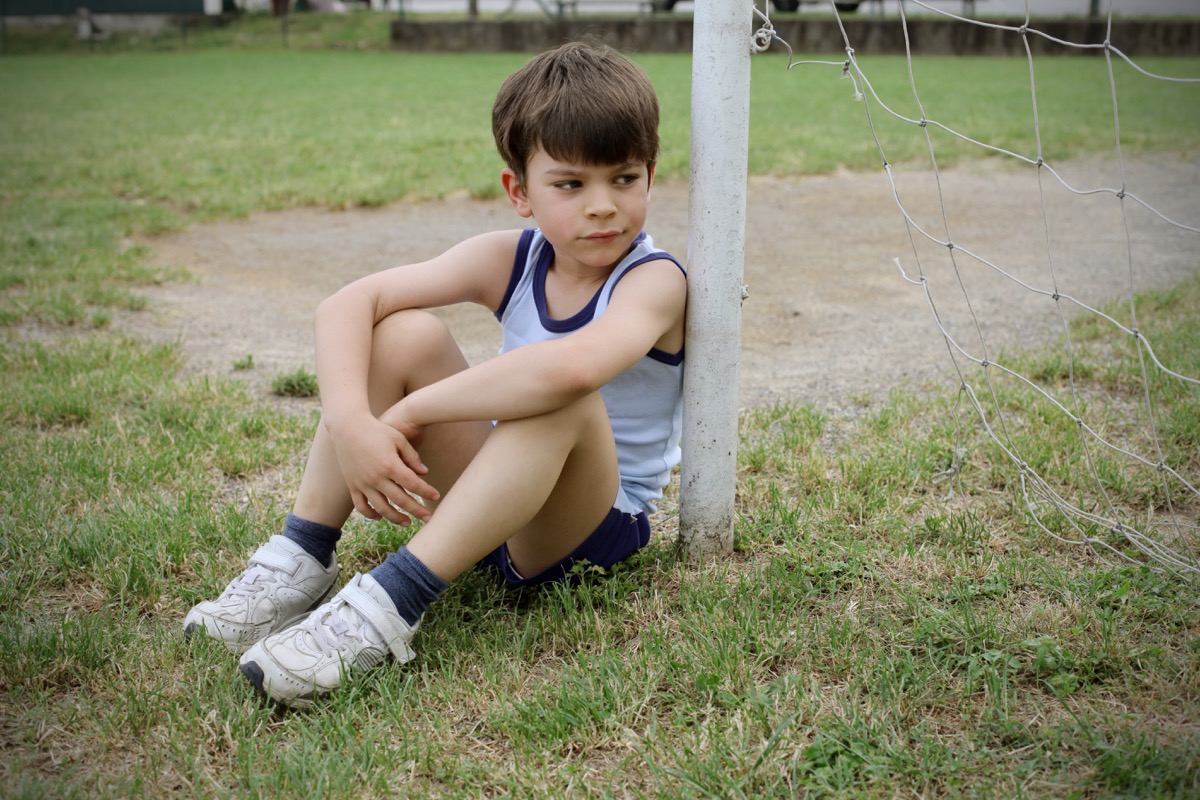22 Signs Your Children Are Way Too Spoiled

Every kid can act less than grateful from time to time, whether they’re begging for a bigger ice cream cone or bemoaning their parents’ willingness to get them an expensive new device. And with many kids having trouble regulating their emotions in light of the newfound changes to their routine courtesy of the coronavirus pandemic, tensions at home are bound to be particularly heightened right now. However, if those less-than-kind behaviors aren’t an occasional occurrence but a constant state of being, there’s a larger problem at play—you’ve got a spoiled child.
Not sure if this applies to your family? With the help of mental health experts, we’ve rounded up the surefire signs your child is spoiled. And if you want to improve your relationship with your children, learn the 16 Ways Experts Say Parents Ruin Their Relationships With Their Kids.
1
They can’t stand hearing “no.”

While few people love hearing the word “no,” if your kids simply can’t tolerate not getting their way, that’s a surefire sign they’re spoiled.
“The best measure of determining whether or not a child is spoiled is how well they cope with being denied access to something they want,” says behavior therapist Jessica Leichtweisz, CEO of Hope Education Services.
However, Leichtweisz says that if you keep working at it, things might change. “Tolerating ‘no’ is like a building a muscle,” she explains. “The more kids hear it, the better they get at it.” And if you want to keep your relationship with your little ones healthy, make sure you avoid these 25 Things Parents Should Never Say to Their Kids.
2
They don’t hide their disdain for gifts they don’t want.

Gracefully accepting a gift you don’t want is an important skill to learn—even for children—and if your kids haven’t mastered it, odds are it’s because they’re spoiled.
While most children know to show their appreciation even when they don’t like a gift, “spoiled children tend to be angry and reactive or non-responsive altogether,” says licensed marriage and family therapist Nicole Arzt, who serves on the advisory board for Family Enthusiast.
3
They refuse to follow rules.

While all kids break rules from time to time—a behavior that may have increased in frequency since your kids have been spending all day at home—spoiled children often don’t believe the rules apply to them at all.
Arzt says that while most children abide by their parents’ rules because they understand the potential consequences, “spoiled children tend to know they’ll be enabled or coddled by someone,” even if they don’t. And if you want to keep your relationship on steady footing, watch out for these 50 Lies Kids Say That Parents Always Fall For.
4
They have frequent tantrums.

Tantrums are a normal part of childhood, and are likely to be a more common occurrence with the recent disruptions to your little ones’ routines. But kids who are overly coddled by their parents tend to throw fits far more frequently—and with less provocation—than the average child.
For many spoiled children, “they’re so used to getting their way that even at the hint of rejection, it’s a knee-jerk reaction for them to make a fuss,” explains certified mental health care consultant and family care specialist Claire Barber.
5
They never offer help.

Though your toddler may not jump in to lend a hand on every household project you’re working on in quarantine, if your suddenly homebound teenager won’t so much as hold the door for you when you’ve got your hands full, that’s a major red flag, says Barber.
“This is very sad yet a common mistake parents make in not instilling the trait of thinking of others,” she explains. “It will have negative repercussions on their future interactions and relationships.”
6
They don’t play well with their peers.

One of the clearest signs your kid’s been overly indulged? They don’t get along with their peers—whether they’re taking a socially distanced stroll or catching up via video chat—because of their bratty behavior.
“Working well with others is a major part of life, so helping our kids learn this early in life is a plus. It is our responsibility as parents to help them learn this,” says clinical psychologist Lori Whatley, PhD.
7
They refuse to do chores.

Your teenager has plenty of time on their hands these days, so if they still can’t muster the resolve to pick up their room after being asked, chances are that attitude stems from a place of entitlement.
“Children should be taught by their parents to do helpful tasks,” says Whatley, who notes that there are age-appropriate chores for kids starting at a very young age. “For example, requiring a five-year-old to put their toys away is responsible parenting.” And if you want more insight into your kid’s life, discover these 23 Ways to Get Your Teenager to Open Up to You, According to Experts.
8
They don’t say “thank you.”

Teaching politeness is a process. That said, if your child won’t express gratitude even when prompted, that’s a good indicator that they’re spoiled.
“If your child cannot express gratitude, it is a sign that they feel entitled to what is done for them and the things that are given to them,” says marriage and family therapist Virginia Williamson, LMFT, co-founder of Collaborative Counseling Group.
9
They start sentences with “I need.”

We all know that person who, even as an adult, begins their Starbucks order with “I need” instead of “may I please have.” And when you encounter this abhorrent behavior, there’s a good chance said individual was spoiled as a child.
“If your child feels strongly that they need everything they desire, from a snack to the newest iPhone, they may not learn the valuable life skill of distinguishing a want from a need, and will frequently experience disappointment and frustration when their wishes aren’t fulfilled,” says Williamson.
10
They don’t share.

Sharing can be difficult at any age—and it may be an even bigger issue now that your kids are spending all day cooped up with their siblings. However, if their unwillingness to share is a consistent behavior, it’s likely due to parental indulgence.
“While it’s normal for kids to be egocentric at certain ages and have difficulty parting with things that are very important to them, your child should be able to demonstrate generosity,” whether that’s letting a sibling play with their toy or donating clothing and goods you no longer use to charity, says Williamson.
11
They talk to you like a peer.

If your kids talk to you with the same lack of respect they use when chatting with their friends, mark one down in the spoiled column.
“A child who is spoiled, largely through no fault of their own, believes that they wield the same power in the family as their parents, and will often speak to them in a dismissive or disrespectful way,” says Williamson.
12
They don’t show empathy.

If your kid isn’t displaying any empathy toward others, whether they’re refusing to make a card for a family member in the hospital or don’t seem to be affected by what’s going on in the world around them, that should be cause for concern.
“Children of any age and developmental stage can make small gestures of empathy. This can be anything from drawing a picture for a sibling who has been sick or injured, or even as simple as giving a parent a hug when they perceive their parent is sad,” says Williamson. An inability or unwillingness to do so is typically indicative of a child who’s spoiled.
13
They’re unwilling to compromise.

Everyone has their emotional ups and downs, especially in the unprecedented times we’re living in, but spoiled children often become so used to being pacified by the adults in their life that their emotional regulation abilities are always severely off-kilter. “If your child continues to have a hard time calming themselves down, being patient, or working towards compromise, this can be an indicator that your child is spoiled,” says Williamson.
However, it’s important to rule out other possibilities before jumping right to the spoiled card. Williamson notes that these can also be signs of untreated mental health issues or learning disabilities, so it’s important to have them assessed by a professional if you don’t feel like at-home behavioral modifications are working.
14
They’re not a good sport.

Losing is never fun. However, if your child can’t handle even minor disappointments, like not winning a game of Monopoly or seeing their sibling score a goal in a game of backyard soccer, it’s an issue that needs addressing.
Williamson says that your child may be spoiled if they’re “always blaming others for poor performance, expecting to be singled out for praise for everything they do, [yelling] at others who aren’t doing things their way, and [failing] to give recognition when their teammates or competitors are successful.”
15
They don’t have a filter.

Kids are notorious for saying the wrong things at the wrong times, whether that means giving unwanted information about their parents’ personal life to strangers or providing vivid details of the last time they got sick. But if your kids are constantly unable to read the room once they’re school-aged, that’s a sign of a larger problem.
“Whether it’s material possessions or simply attention, they will ask for what they want without any regard for the time or place,” says Sanam Hafeez, PsyD, a member of the teaching faculty at Columbia University. “For example, they may interrupt their parent and demand their attention only to show their parent something that could have waited.”
16
They don’t care if their behavior inconveniences others.

Things are hard for everyone right now—but a spoiled child likely won’t change their entitled behavior, even if what they’re asking of their parents or friends is no longer possible.
Spoiled kids “ask without consideration of money, time, and inconvenience to others,” says Hafeez. Ultimately, this becomes a larger issue as it “affects them later in life in relationships, school, the workplace, and other basic social interactions.”
17
They lash out when they don’t get their way.

“Typical of narcissists—and spoiled children are being raised to develop narcissistic traits—when they don’t get their way they will be mean and overly dramatic,” says Hafeez. “Think door slamming, throwing things, and dishing out deep insults.”
18
They have poor self-esteem.

While spoiled children can often seem overly confident, that’s typically a façade masking their own harsh self-criticism.
“Often anxious and self-loathing, [the] adult version of a spoiled child overcompensates for low self-worth by latching onto others to build them up,” says Hafeez.
19
They demand special treatment.

It’s great to make your kids feel special. If your kid demands being treated as such, regardless of the occasion, that’s far from a good sign.
For example, this could include “making special meals for this child many nights and not having one family meal [or] your child [insisting] on sleeping with you despite your wish to have them sleep in their own bed,” says Gail Saltz, MD, an Associate Professor of Psychiatry at the NY Presbyterian Hospital Weill-Cornell School of Medicine.
20
They bully others.

Bullying can happen even when kids are not physically present at school, and this behavior often has a surprising origin: overly permissive parenting.
Spoiled children “are only aware of their own feelings, not others,” says Saltz, who notes that this can lead to meanness and bullying behavior toward their peers.
21
They’re manipulative.

If the phrase, “Mom lets me do that because she loves me more than you” is part of your child’s vocabulary, it’s high time you reconsider your parenting strategy.
“A spoiled child will use parents as pawns to serve their agenda,” says Hafeez. “They’ll even pit parent against parent, and pair up with the parent who aligns with their way.”
22
They always ask for more.

A spoiled child rarely appreciates what they have. Instead, they just keep asking for more—even when their caregivers are just trying to keep their heads above water.
“If your child is given and expecting [treats] 24/7, then their reaction to a holiday cookie may not be ‘yum, this is great!’ It may be ‘meh, I want ice cream!'” says Saltz. “If this goes on often enough, then this reflects a problem.”